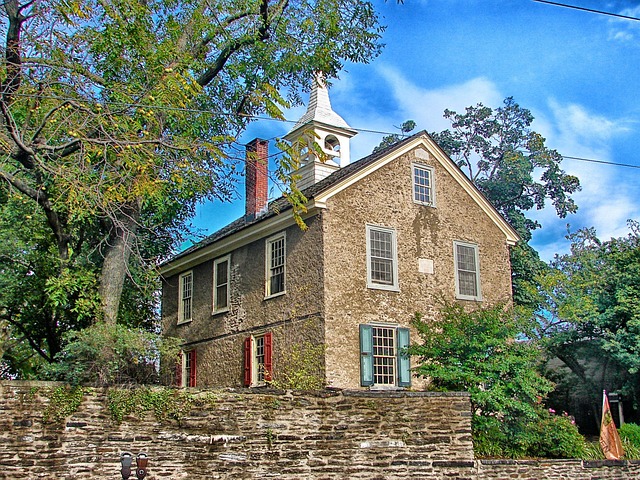In Pennsylvania, autodialer law firms operate within a stringent legal environment aimed at balancing telemarketing businesses' needs with consumers' rights. The state's regulations require explicit consent before dialing, offer opt-out options, and adhere to strict time limits to avoid penalties and maintain ethical practices. Community engagement actively shapes these policies through hearings, town halls, and online forums, leading to balanced legislation that protects privacy while supporting responsible marketing practices. As digital connectivity grows, resident advocacy will continue to drive reforms, aligning with modern communication preferences and prioritizing consumer protection from invasive marketing tactics.
In Pennsylvania, community engagement plays a pivotal role in shaping autodialer policies, impacting consumer privacy and business practices. This article delves into the intricate relationship between communities and autodialer laws, exploring how local initiatives influence state-level legislation. From understanding the current landscape to analyzing case studies, we uncover the power of collective action in modifying autodialer regulations. Additionally, we provide insights into potential future trends, highlighting the lasting impact of community advocacy in Pennsylvania’s autodialer law firm ecosystem.
Understanding Autodialer Policies in Pennsylvania

In Pennsylvania, the use of autodialers—automated telephone dialing systems—is regulated by specific laws designed to protect residents from unwanted calls and ensure fair practices in telemarketing. These regulations are essential as autodialer law firms operate within a tight legal framework to deliver messages while respecting individual privacy. The state’s autodialer laws aim to balance the needs of businesses engaging in telemarketing with the rights of consumers to receive calls only when they’ve consented.
Understanding these policies is crucial for both businesses operating in Pennsylvania and residents receiving automated calls. The regulations cover various aspects, including obtaining explicit consent before dialing, providing a way to opt-out of future calls, and adhering to specific time restrictions. Autodialer law firms must navigate this legal landscape, ensuring their practices align with the state’s guidelines to avoid penalties and maintain consumer trust.
The Impact of Community Engagement on Legislation

Community engagement plays a pivotal role in shaping autodialer policies in Pennsylvania, significantly influencing the legislation that governs autodialer law firms. When residents actively participate in discussions and provide feedback on proposed regulations, their voices carry weight, ensuring that the final policies align with the needs and concerns of the local population. This democratic process allows for a more nuanced understanding of how autodialer services impact communities, fostering legislation that is both effective and sensitive to local dynamics.
In Pennsylvania, where the use of autodialers for marketing purposes has grown, community engagement has been instrumental in crafting balanced regulations. Through public hearings, town halls, and online forums, residents have shared their experiences, expressed privacy concerns, and offered suggestions for improving the laws. This feedback has directly influenced the state’s approach to autodialer legislation, resulting in policies that protect consumer rights while also supporting responsible marketing practices by law firms.
Case Studies: How Communities Have Influenced autodialer Laws

Communities in Pennsylvania have played a significant role in shaping and influencing the regulations surrounding autodialer laws. Case studies across various regions highlight successful collaborations between residents, local businesses, and legal experts to address concerns related to telemarketing practices. For instance, a small town in southeastern Pennsylvania experienced a surge in unwanted phone calls from automated dialers, leading to increased frustration among residents. In response, the community organized a series of meetings with local representatives and a renowned autodialer law firm to draft and implement stricter local regulations. This initiative resulted in a notable reduction in nuisance calls, showcasing the power of collective action.
Another compelling example involves a metropolitan area where a coalition of concerned citizens, including students and professionals, joined forces to advocate for more transparent and consumer-friendly autodialer practices. Their efforts led to a comprehensive study on the impact of automated calls, followed by legislative proposals that balanced business interests with individual privacy rights. These community-driven initiatives have not only brought about positive changes in local laws but also served as models for other regions, demonstrating the potential for grassroots movements to shape policy and protect citizens from invasive marketing tactics.
Looking Ahead: Predicting Community-Driven Changes in the Future

As communities in Pennsylvania become more digitally connected and empowered, the future of autodialer policies is poised for significant shifts. The collective voice of residents could lead to a re-evaluation of existing regulations, pushing for reforms that better align with modern communication preferences. With advancements in technology, community engagement through digital platforms may create new norms around consent and communication practices. This shift could result in more personalized and targeted marketing while ensuring consumer privacy and reducing unwanted calls.
The role of community advocacy is already evident in the ongoing discussions surrounding autodialer laws. As the legal landscape evolves, a collaborative approach between policymakers, autodialer law firms in Pennsylvania, and citizens will be crucial. By embracing community-driven changes, the state can develop policies that foster innovation while protecting consumers, ensuring a balanced approach to communication technologies.






